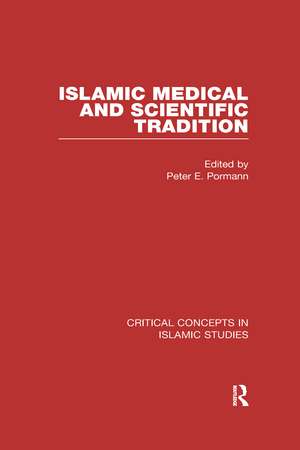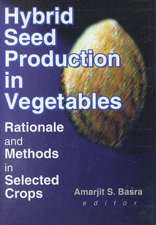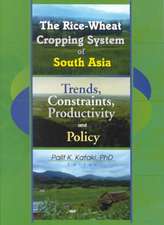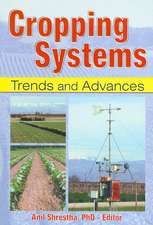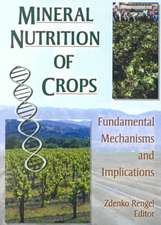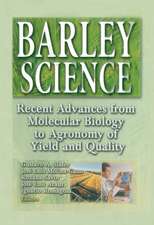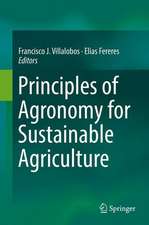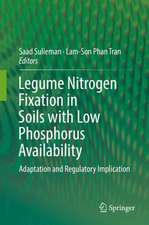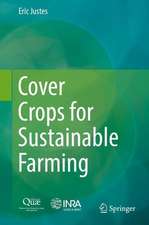Islamic Medical and Scientific Tradition: Critical Concepts in Islamic Studies
Editat de Peter Pormannen Limba Engleză Hardback – 2 sep 2010
Islamic Medical and Scientific Tradition presents a selection of works that illustrate the intellectual curiosity and theoretical vigour with which Arabs and non-Arabs living in the medieval Muslim world pursued scientific endeavours. The focus is firmly on scholarship published within the last twenty years, during which period the discipline has enjoyed a new bloom.
Starting with the theoretical framework of the sciences in Islamic philosophy and theology, this new collection from Routledge elucidates the position of mathematics, physics, and medicine within the hierarchy of the sciences. Another topic discussed is Ancient (or Greek) versus traditional (or Muslim) sciences; and Islamic theological views on the pure pursuit of knowledge. The life sciences of Biology, Medicine, and Veterinary Medicine are examined, as are those of the physical sciences: Physics and Astronomy. The occult ‘sciences’ of Astrology, Alchemy, and Geomancy are also discussed. Close attention is paid to the mathematical sciences of Arithmetic, Algebra, Geometry, Optics (including the introduction of zero, the invention of algebra, the squaring of the circle, conics, and the nature of vision). The practical sciences, Agriculture, Engineering, and Horticulture, are also examined in detail.
Fully indexed, and with a comprehensive introduction newly written by the editor, that places the collected material in its historical and intellectual context, this is an essential work destined to be valued by scholars, students, and researchers as a vital one-stop reference resource.
Din seria Critical Concepts in Islamic Studies
- 34%
 Preț: 4239.15 lei
Preț: 4239.15 lei - 34%
 Preț: 6741.77 lei
Preț: 6741.77 lei - 33%
 Preț: 1279.94 lei
Preț: 1279.94 lei - 34%
 Preț: 5482.50 lei
Preț: 5482.50 lei - 34%
 Preț: 6189.19 lei
Preț: 6189.19 lei - 34%
 Preț: 4924.98 lei
Preț: 4924.98 lei - 36%
 Preț: 4378.50 lei
Preț: 4378.50 lei - 34%
 Preț: 6183.03 lei
Preț: 6183.03 lei - 34%
 Preț: 3961.32 lei
Preț: 3961.32 lei - 34%
 Preț: 5486.58 lei
Preț: 5486.58 lei - 34%
 Preț: 6188.11 lei
Preț: 6188.11 lei - 34%
 Preț: 6191.18 lei
Preț: 6191.18 lei - 33%
 Preț: 3697.55 lei
Preț: 3697.55 lei - 34%
 Preț: 6186.14 lei
Preț: 6186.14 lei - 34%
 Preț: 6739.46 lei
Preț: 6739.46 lei - 34%
 Preț: 6173.50 lei
Preț: 6173.50 lei - 34%
 Preț: 7295.07 lei
Preț: 7295.07 lei
Preț: 4233.57 lei
Preț vechi: 6395.53 lei
-34% Nou
Puncte Express: 6350
Preț estimativ în valută:
810.12€ • 866.27$ • 675.44£
810.12€ • 866.27$ • 675.44£
Carte tipărită la comandă
Livrare economică 18 aprilie-02 mai
Preluare comenzi: 021 569.72.76
Specificații
ISBN-13: 9780415479530
ISBN-10: 0415479533
Pagini: 1528
Dimensiuni: 156 x 234 x 105 mm
Greutate: 2.99 kg
Ediția:1
Editura: Taylor & Francis
Colecția Routledge
Seria Critical Concepts in Islamic Studies
Locul publicării:Oxford, United Kingdom
ISBN-10: 0415479533
Pagini: 1528
Dimensiuni: 156 x 234 x 105 mm
Greutate: 2.99 kg
Ediția:1
Editura: Taylor & Francis
Colecția Routledge
Seria Critical Concepts in Islamic Studies
Locul publicării:Oxford, United Kingdom
Cuprins
Volume I Part 1: The Theoretical Framework: The Sciences in Islamic Philosophy and Theology Part 2: The Life Sciences: Biology, Medicine, Veterinary Medicine Volume II Part Two Continued Volume III Part 3: The Physical Sciences: Physics, Astronomy, Geodesy Part 4: The Occult Sciences: Astrology, Alchemy, Geomancy Volume IV
Part 5: The Mathematical Sciences: Arithmetic, Algebra, Geometry, Optics Part 6: The Practical Sciences: Agriculture, Cartography, Engineering
Part 5: The Mathematical Sciences: Arithmetic, Algebra, Geometry, Optics Part 6: The Practical Sciences: Agriculture, Cartography, Engineering
Descriere
Islam developed over the course of its history one of the most innovative and interesting scientific and medical traditions in the world. In this context, the term Islam should not simply be understood as referring to the religion of the prophet Muhammad, but rather to a civilisation which was surprisingly open to foreign influences, and eager to engage with the proverbial Other. Yet Islam is often perceived as being opposed to (Western) science and methodology. Islamic Medical and Scientific Tradition presents a selection of articles that illustrate the intellectual curiosity and theoretical vigour with the medieval Muslim world pursued scientific endeavours. The focus is firmly on articles published during the last twenty years, during which the discipline has enjoyed a new bloom, with a significant number having been published in the new millennium.
